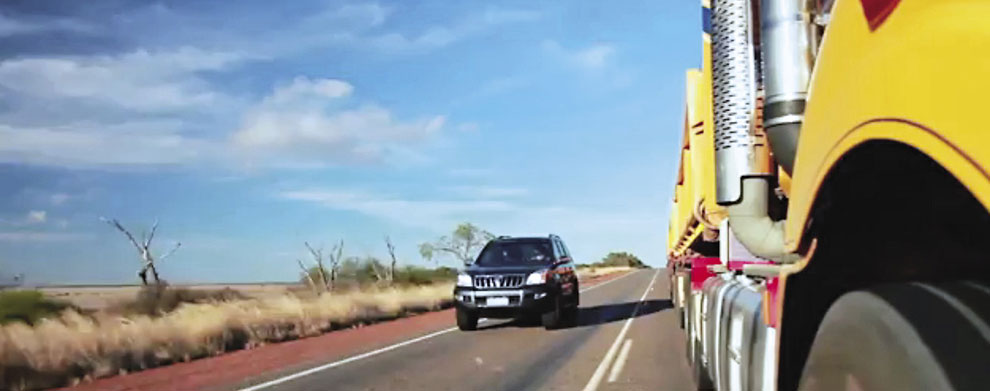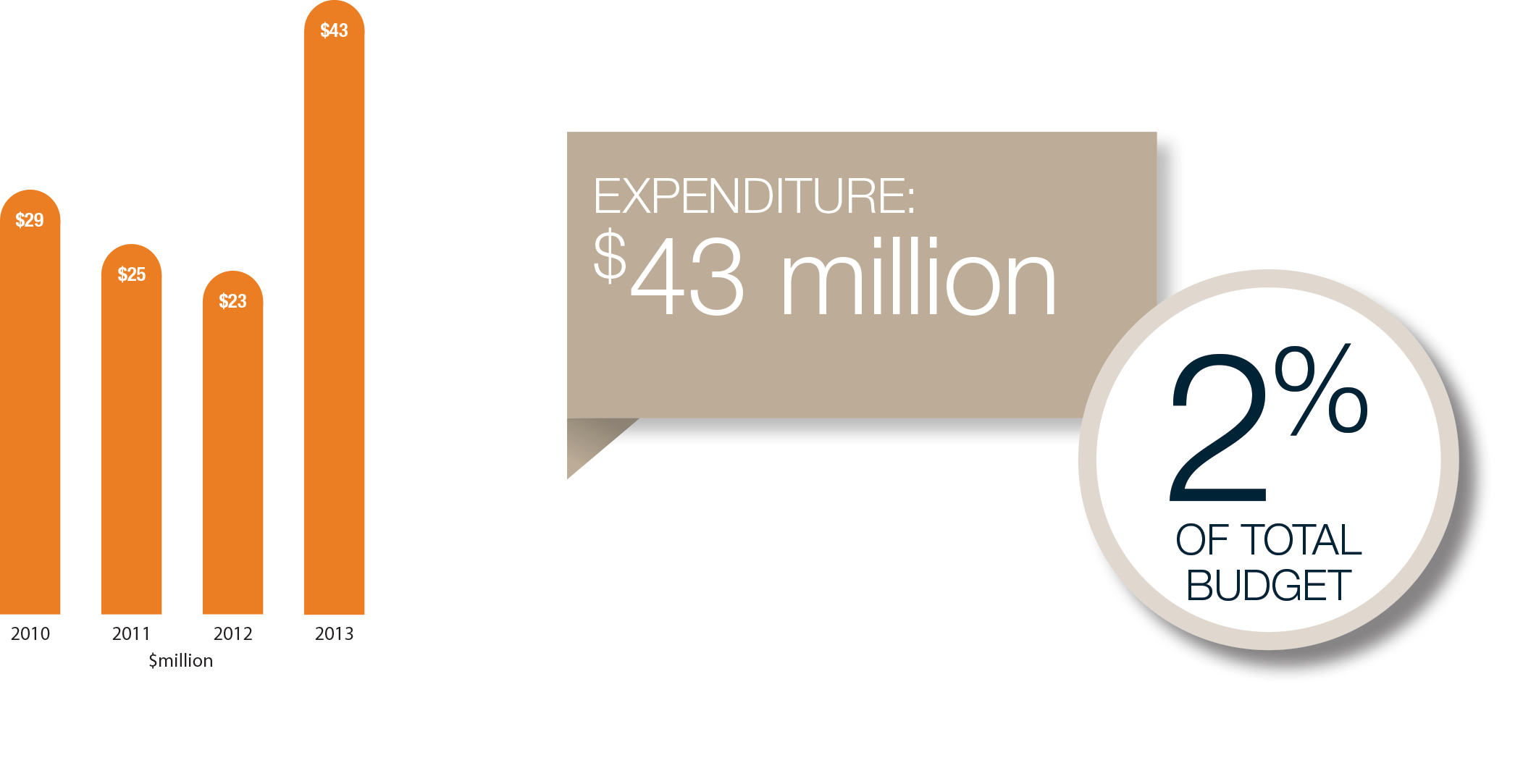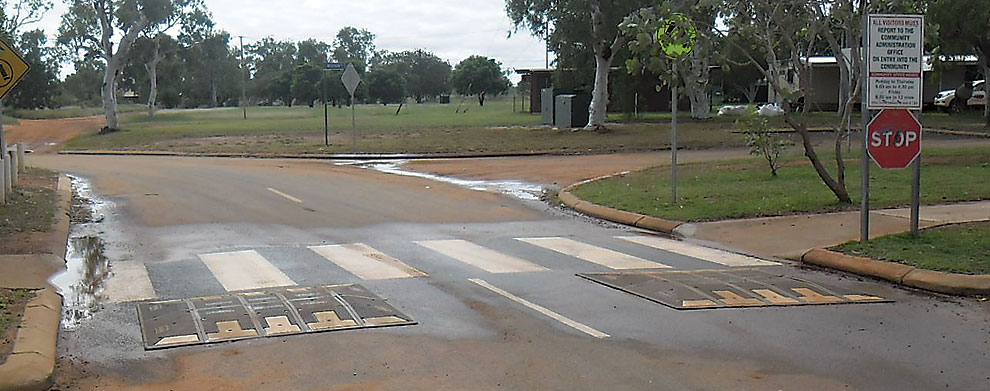
Office of Road Safety
Leading and Coordinating the State Road Safety Strategy
This program aims to achieve improved coordination and community awareness of road safety in Western Australia.

Key Performance Indicators
2013 Target |
2013 Actual |
Result |
|
% Effectiveness of road safety awareness campaigns |
>50% |
83% |
✔ |
% of contracts completed on budget |
90% |
100% |
✔ |
2010 |
2011 |
2012 |
|
WA Road Fatalities |
193 |
179 |
183 |
WA Hospitalisations |
2,497 |
2,384 |
2,449 |
Introduction
This program is unique within the Main Roads’ program structure and represents the activities of a single business unit – the Office of Road Safety (ORS). The ORS is the lead organisation for road safety in Western Australia and has responsibility for developing, coordinating, promoting and monitoring the State’s road safety strategy, Towards Zero.
We provide road safety policy, research, evaluation and community education. As the body supporting the Minister for Road Safety in the administration of the Road Safety Council Act 2002 and providing support to the Road Safety Council (RSC) and Government, we are responsible for administering the Road Trauma Trust Account (RTTA) for road safety programs. From July 2012, the RTTA received 100% of the speed and red light camera fines revenue which are provided to agencies and organisations to implement priority safety projects consistent with the Government’s Towards Zero Strategy. The Office monitors and reports on the implementation and the results being achieved. Together with the RSC, we promote the shared responsibility of road safety with the objective of significantly reducing road trauma on our roads.
Towards Zero Safety Strategy
Towards Zero is the State’s Road Safety Strategy. The underlying philosophy of the strategy means we do not accept that any human being should die or be seriously injured on our roads. Realistically, we understand it is not practical to achieve zero fatalities on our roads by the year 2020, but we do not accept any death or serious injury as inevitable. Using a Safe System approach, Towards Zero advocates for safe drivers in safe vehicles, travelling at safe speeds on safe roads. If all components of the Towards Zero strategy are fully implemented, we have the potential to save 11,000 people from being killed or seriously injured between 2008 and 2020. That is a reduction of around 40% on present day levels. This also represents a potential cost saving to the community of up to $2.4 billion. For more information visit our website at www.ors.wa.gov.au.
Road Safety Council
The Road Safety Council (RSC) is chaired by Professor Murray Lampard APM and includes representatives from the Departments of Transport, Planning, Education, Health, Main Roads, Western Australian Local Government Association, Office of Road Safety, Insurance Commission of Western Australia, Western Australia Police and the Royal Automobile Club of Western Australia (RACWA) which represents the State’s road users. The Council identifies measures to improve road safety; identifies and recommends measures to reduce deaths and injuries resulting from road crashes; evaluates and monitors the effectiveness of these measures; and makes recommendations to Government to improve safety on the State’s roads.
Key Achievements
Leading Business Planning and Projects to Reduce Road Trauma in WA
This year, we took the lead in developing a results-focused performance monitoring framework which reports achieved results and links key indicators to monitor the safety of the network. In line with the findings from the Auditor General’s review into the management of the RTTA, we identified major projects and prepared business cases for consideration and funding. We will also continue to strengthen reporting to the Government, Parliament and public on the life saving outcomes of projects funded from the RTTA. We gained Government endorsement on the disbursement of funding based on RSC recommendations for projects that will prioritise the types of crashes occurring on our roads.
Australian First Road Crash Analysis
In 2013, we took a different approach to road crash analysis. Rather than examining past crash trends, and adopting a method applied in a Sweden project, we forecast future trends to provide a clear view to our 2020 road safety goals.
In conjunction with a visiting Engineer from Sweden, we analysed fatal crashes on State roads to identify which crashes would not occur in 2020 due to road and vehicle safety improvements. This analysis enabled us to look forward to 2020 and forecast potential reductions in the number of people killed and seriously injured. It also allowed us to identify crash areas that are not fully addressed under current programs.
Remote Area Safe System Demonstration Project
We have been involved in the Austroads Remote Area Safe System Demonstration Project in Bidyadanga, south of Broome. The project has mapped the process of improving the safety of roads, vehicles, speed and behaviour in an Aboriginal community.
Key achievements include:
- Constructing a pedestrian crossing and improved lighting at Bidyadanga
- Improving signage, line marking and speed bumps to lower speeds
- Attaining grants for speed and pedestrian safety awareness in the community
- Negotiating improved fencing so that fewer cattle will stray onto the Great Northern Highway near the Bidyadanga access road.
In applying the Safe System in an Aboriginal community, the challenges and lessons learned can inform other communities and partner organisations seeking to improve road safety in their region.
Remote Alcohol Interlock Trial Commenced
We are the lead agency in a trial investigating issues associated with fitting and using alcohol interlocks in remote areas as part of the Government’s introduction of alcohol interlocks for repeat drink driving offenders. An alcohol interlock is a device fitted to a vehicle where a driver must blow into the device and register a Blood Alcohol Concentration of below the legal limit before the engine will start.
The Ngarliyarndu Bindirri Aboriginal Corporation in Roebourne was chosen to coordinate the program on the ground. They are promoting a drink driving message and supporting volunteers in the community to fit alcohol interlocks in their cars. A review managed by our Office is expected to be completed by early 2014.
Management of the Road Safety Council Research Program
We fund road safety research to understand the causes of road trauma; identify new and evaluate existing safety measures, and research ways to prevent road trauma. Since 2009, the Curtin Monash Accident Research Centre (C-MARC) has developed programs of work in response to identified needs. During the year, the following reports were produced:
- Sociocultural understanding of young people
- Understanding and documenting the long term consequences of road trauma
- Understanding the high occurrence of serious casualty crashes by location.
For more information on these reports, please refer to the C-MARC website.
ISO 39001 Standard Information Now Available
We played a lead role in contributing to the creation and launch of ISO 39001 in October 2012. ISO 39001 is an international standard for managing and improving road safety performance within an organisation. It provides a structured, holistic approach to road safety that is complementary to existing programs, procedures and regulations.
The standard is expected to support the transfer of knowledge about what works from the perspectives of road safety researchers and practitioners to a wider range of personnel in different types of organisations. This was an international piece of work and representatives from Australia played a lead role in helping to develop the standard.
New ORS Website
The new ORS website was launched in June 2013 following an extensive review process. To achieve our aim of encouraging stakeholders and community members to learn more about the road safety issues in Western Australia, it is essential that the website is informative and easy to use. As the State’s official road safety website, it provides the interface to road safety information for all stakeholders and road users including statistical information about fatal and serious road crashes.
Online Partnership Toolbox assists Workplace Road Safety
Increasing pressure is being placed on organisations to ensure that workplace road safety is adequately addressed and managed. We are on the front foot in supplying this information online through the Online Partnership Toolbox.
The toolbox provides a wide range of resources and aims to assist employers to educate and communicate with their stakeholders and employees thereby helping to reduce death and serious injuries on our roads. It also provides access to information on implementing adequate Workplace Road Safety policies and procedures to improve the safety of an organisation’s transport activities. Visit our website to access the toolbox.
Community Education
We undertake major education campaigns aimed at raising community awareness and ultimately leading to behavioural changes that will reduce speed and drink driving related deaths in WA. We have once again produced a 16-page print lift out, ‘On the Road’, to raise awareness on a range of topics including targeted holiday road safety messages for December and January.
Speed campaigns, ‘Post It Notes’, ‘Enjoy the Ride’, two drink driving campaigns ‘OK is not OK’ and ‘You Deserve it’ ran State wide through mass media and used online components and social media.
In regional WA, a campaign titled ‘Sashes’ addressed the prevalence of young males killed in crashes when not wearing a seat belt. We have partnered with WIN TV to broadcast ‘Off the Boot’, WA’s only regional football television show. The show, which concluded in September, featured important road safety ‘Belt Up’ messages, targeting young males in regional and rural WA.
Aboriginal people are disproportionately represented in statistics relating to drink driving and not wearing seat belts. In the Kimberley, we have a strong working partnership with Goolarri Media Enterprises which ran media campaigns to deliver specific road safety messages to Aboriginal Australians. Two culturally appropriate television and radio commercials on drink driving and use of restraints were produced and ran monthly from September 2012 to June 2013.
Recognition
2012 Perth Advertising and Design Club Awards
- Silver ‘Online Advertising’ – ESC Scroll Down
- Bronze ‘TV/Cinema Social Marketing & Charity’ – Restraints Sashes

Speed bumps installed at Bidyandanga
Looking Ahead
- Enhance the monitoring and reporting of road safety results with the new performance indicator framework and improved evaluation and auditing.
- Continue to produce community education campaigns with a focus on priority areas for reducing road trauma in the safe system approach.
- Implement the outcomes of the Government’s review of the Road Safety Framework.
- Support Government in implementing the repeat drink driving strategy to enable the use of alcohol interlocks for repeat and high end drink drivers.
- Develop and implement an annual evaluation program to maximise the effective use of RTTA funds.
Case Study
Regional Run Off Road Program
Towards Zero, the State’s road safety strategy for 2008-2020 clearly identified regional run off road crashes as a priority area for reducing the number of people killed and seriously injured. Single vehicle run off road crashes accounted for almost 60% of all road deaths and serious injuries in regional and remote Western Australia from 2008-2012. This year, increased funding from the Road Trauma Trust Account (RTTA) means the Regional Run off Road Program is the largest funded program with $37 million allocated to its further development and implementation. Read more...


